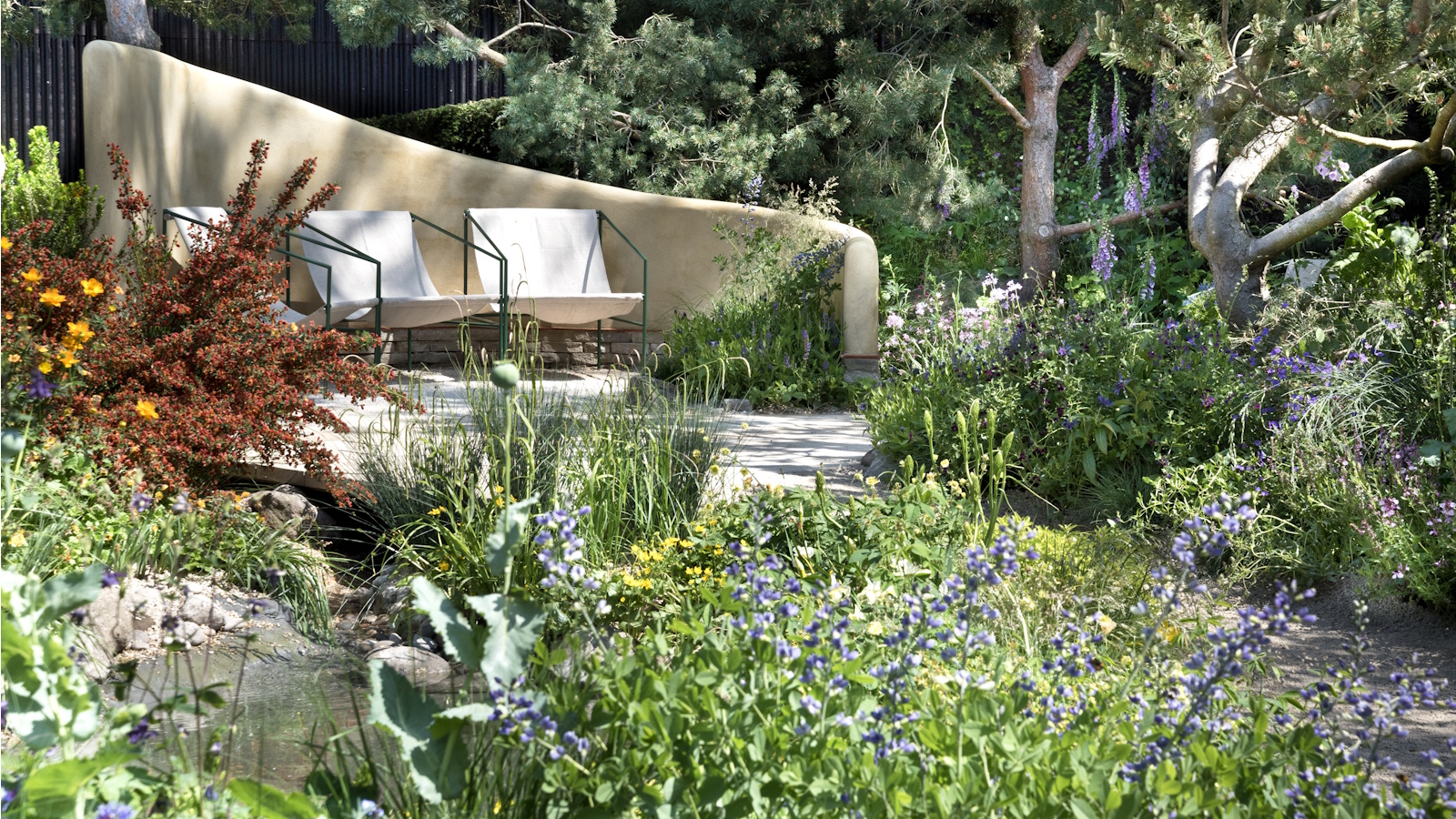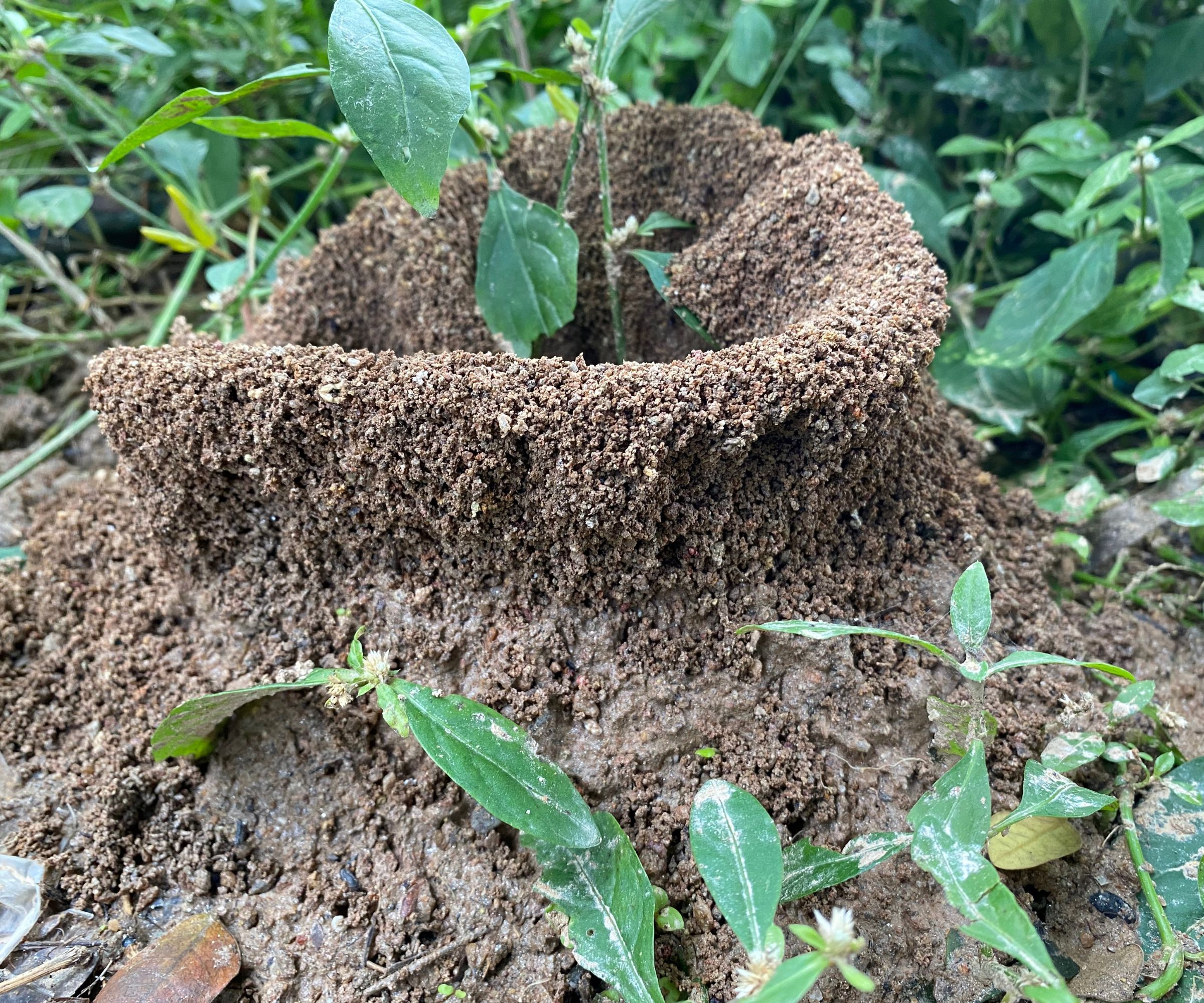I just discovered the best non-toxic product for getting rid of ants in your yard – and you probably already have it in your bathroom cupboard
This household item is an effective ant deterrent that doesn't leach harmful chemicals into your soil


Design expertise in your inbox – from inspiring decorating ideas and beautiful celebrity homes to practical gardening advice and shopping round-ups.
You are now subscribed
Your newsletter sign-up was successful
Want to add more newsletters?

Twice a week
Homes&Gardens
The ultimate interior design resource from the world's leading experts - discover inspiring decorating ideas, color scheming know-how, garden inspiration and shopping expertise.

Once a week
In The Loop from Next In Design
Members of the Next in Design Circle will receive In the Loop, our weekly email filled with trade news, names to know and spotlight moments. Together we’re building a brighter design future.

Twice a week
Cucina
Whether you’re passionate about hosting exquisite dinners, experimenting with culinary trends, or perfecting your kitchen's design with timeless elegance and innovative functionality, this newsletter is here to inspire
Every gardener has to deal with pests at some point or another. It's almost inevitable to come across insects like ants crawling all over your yard. But, did you know you can get rid of ants with a bar of soap? Even better, using organic soap is a non-toxic pest control hack that doesn't harm your soil.
A large population of ants in your yard can cause numerous problems which is why many choose to employ methods to try and get rid of them altogether. Commercial pesticides can make it tricky, though, often leaching harmful chemicals into your soil. Irish Spring soap, however, is a non-toxic gardening swap for chemical pesticides, keeping ants away without harming your backyard environment.
To use this natural pest control method, simply grab an Irish Spring soap bar from your bathroom cabinet and follow our tips to get rid of ants with a bar of soap successfully:
How to get rid of ants with a bar of soap

Ants can disturb plant roots and cause ant hills to appear across your yard. But, with a bar of soap in hand, they'll be gone in no time.
To start with, you want to make sure you use organic soap - like this Irish Spring soap bar from Walmart. This ensures you stick to eco-friendly garden ideas by not using products packed with harmful chemicals that can impact soil health.
You can then use a couple of methods to get rid of ants outdoors without killing plants by using your bar of soap.
This includes using a cheese grater (from Amazon) and making soap shavings to sprinkle throughout your yard, including in flower beds, borders, and pots.
Design expertise in your inbox – from inspiring decorating ideas and beautiful celebrity homes to practical gardening advice and shopping round-ups.
'The reason this non-toxic pest control hack works is Irish Spring soap contains picaridin, a pest-repelling active ingredient,' explains Homes & Gardens' Head of Gardens, Rachel Bull.
'It also makes sense the citrus fragrance of the soap deters ants because it's a strong scent they can't stand,' she adds.
This is often the logic behind why pest-repellent plants work, too, with the strong aromas of these plants keeping a wide range of pests away.
Another method is dragging the Irish Spring soap to make ant-repellent barriers. This is a good choice for getting rid of ants in the home and keeping them away from entrances to your home.
And it's as simple as that. When using this soap to get rid of ants, target the areas of your yard that are most affected.

Rachel is a gardening editor, flower grower and floral designer. Her journalism career began on Country Living magazine, sparking a love of container gardening and wild planting. After more than a decade writing for and editing a range of consumer, business and special interest titles, Rachel became editor of floral art magazine The Flower Arranger. She then trained and worked as a floral designer and stylist for six years, before joining the Homes & Gardens team.
FAQs
Can you use Irish Spring body wash to get rid of ants?
While it's true Irish Spring soap can get rid of ants, it's thought to be more effective in bar form than liquid Irish Spring body wash (from Walmart). However, the fragrance and active ingredient picaridin present in liquid Irish Spring still makes it a good pest-repellent ingredient to add to homemade sprays.
Other methods to get rid of ants also harness fragrance these insects can't stand. This includes using vinegar to kill ants and repel them.
However, vinegar can alter soil pH and harm beneficial microorganisms living in different soil types. That's why it's best to seek non-toxic methods for getting rid of pests which won't harm the ecosystem in your yard.

Tenielle is a Gardens Content Editor at Homes & Gardens. She holds a qualification in MA Magazine Journalism and has over six years of journalistic experience. Before coming to Homes & Gardens, Tenielle was in the editorial department at the Royal Horticultural Society and worked on The Garden magazine. As our in-house houseplant expert, Tenielle writes on a range of solutions to houseplant problems, as well as other 'how to' guides, inspiring garden projects, and the latest gardening news. When she isn't writing, Tenielle can be found propagating her ever-growing collection of indoor plants, helping others overcome common houseplant pests and diseases, volunteering at a local gardening club, and attending gardening workshops, like a composting masterclass.